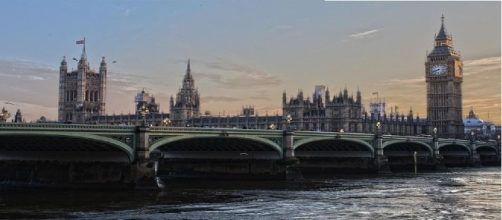Prime Minister Theresa May announced a snap election earlier this week to be held on the 8th June. But as we digest events, let us take a look at why she called for elections and what it essentially means.
The facts
On Tuesday morning (18th April) Theresa May announced that a general election would be called on the date specified above. The following day the Telegraph newspaper reported that Parliament backed the decision with 522 MPs voting in favour with just 13 against.
Why did May call an election?
There are a number of reasons. One key reason was to consolidate her support.
The Financial Times stated that "the opinion polls are so huge in the Conservatives favour right now". As a result, the opportunity to "win a landslide probably won't come again". The statistics do back this up too. Right now the 'Tories', according to a survey, have a 21 point lead over Labour. In addition, a new poll puts the Conservatives on 44 per cent and Labour at just 23 per cent. Inter connected to this is the state of its unpopular leader, Jeremy Corbyn. After defeating Owen Smith in re-election as Labour leader last year, the Independent newspaper (like many media outlets) stated that "Labour is further away from government than ever". It was further said that with re-election last year it would be "regrettable" as a result for the party in that it would "result in a free run for the Tories".
He has also been viewed as "incompetent", "unappealing" and essentially "incapable". It is as result of this that makes the call for an election such a sensible idea for the Conservative party. But there are other reasons to behind Theresa May's decision. It is clear that she needs a mandate. A constant criticism of the PM was that she was not elected by the public and therefore had no accountability.
This is crucial with the challenges that the country is facing. May even stated that clearly at the time, saying that the election was "the only way to guarantee certainty...for the years ahead", as stated on the New Statesman website. It was interesting in that this call for a mandate has occurred in the past, by none other than Theresa May herself.
She stated in August 2007 that the Prime Minister at the time, Gordon Brown, had "no democratic mandate" as he was not elected by the public.
Brexit
Above all else that is happening in British politics, this mandate was essential mainly for the Brexit negotiations. It is clear that if the exit from the EU is to occur and prove successful she not only needs support from Parliament but also from the General Public. This was demonstrated by the fact that she urged voters to "put their trust in me". This need for trust is important because there are already problems with the Brexit process. Having triggered Article 50, one key issue is the 'divorce bill'. The CNN reported that the EU wants the UK to "honour existing commitments, "even as it walks out the door".
This was mean that the UK would have to make financial commitments as it leaves. It is supposed to be around $63 billion. Furthermore, with regards to trade, Theresa May wants to negotiate a "clean break" with the EU and a new free trade deal at the same time. However, this has been vehemently rejected by EU officials who said that a future trading relationship will not even be talked about until "other issues" are settled. Even on the topic of migrants, although the UK wants changes to the current set up, "nothing is guaranteed".
Concluding thoughts
It is clear that problems lie ahead for Theresa May and the UK itself. It is because of this great Brexit struggle that awaits which clearly shows the importance of the election being called.
She not only needs the support from Parliament but also from the general public. The mandate that she would attain if re-elected will be crucial going forward as she attempts to take the UK out of the European Union.

